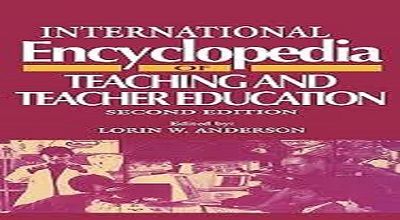Teaching encyclopedia
A teaching encyclopedia is a comprehensive resource that provides information on a wide range of topics, typically organized alphabetically or by subject area. It is designed to provide users with easy access to knowledge and understanding of various subjects. Teaching encyclopedias often include detailed explanations, illustrations, diagrams, and references to additional sources of information. They are commonly used as educational tools in schools and libraries. Other learning environments can also be accessed online or in print form.
Teaching encyclopedias aims to present information clearly and concisely, making them suitable for readers of all ages and backgrounds. They cover a diverse range of subjects, including science, history, geography, literature, art, mathematics, and more. The information provided in teaching encyclopedias is typically well-researched and fact-checked to ensure accuracy and reliability.
Teaching Encyclopedias in Education
While there may not be a widely recognized term for “teaching encyclopedia.” We can discuss the potential role of encyclopedias in education. Traditional encyclopedias, whether in print or digital form, have long been valuable resources for gathering information on a variety of subjects. Here are some points to consider in a discussion about the use of encyclopedias in education:
- Comprehensive Information: Encyclopedias typically provide comprehensive and reliable information on a wide range of topics. They can serve as a starting point for research, offering a broad overview of a subject before delving into more specialized sources.
- Research Skills: Encyclopedias can help students develop research skills by teaching them how to locate, evaluate, and use information effectively. Learning to navigate and critically assess entries can contribute to information literacy.
- Reference for Teachers: Teachers can use encyclopedias as references to enhance their understanding of various subjects, ensuring that they provide accurate and up-to-date information to students.
- Digital Accessibility: With the advent of digital encyclopedias and online resources, information is more readily accessible. This accessibility can facilitate learning and research both inside and outside the classroom.
- Supplemental Learning: Encyclopedias can be used as supplemental learning tools. Offering additional information beyond standard textbooks. This can help cater to diverse learning styles and interests.
More here…
- Cautions on Reliability: While encyclopedias are generally reliable sources, it’s essential to teach students about the importance of verifying information and using a variety of sources to ensure accuracy.
- Encouraging Critical Thinking: Encouraging students to question and critically analyze information found in encyclopedias fosters critical thinking skills. This includes understanding potential biases, checking for currency, and considering the authority of the source.
- Integration with Technology: Utilizing digital encyclopedias can integrate technology into the learning process. This may involve online research, multimedia content, and interactive features that enhance engagement.
- Customization for Educational Levels: Some encyclopedias are designed specifically for certain educational levels. Providing age-appropriate content and language. This customization can support the diverse needs of students across different grades.
- Collaborative Learning: Encyclopedias can be used as collaborative tools. Encouraging students to share and discuss information. This collaborative learning approach can enhance communication skills and broaden perspectives.
Summary
In summary, the concept of a “teaching encyclopedia” may not be explicitly defined. The integration of encyclopedic resources in education can offer numerous benefits, from fostering research skills to supporting diverse learning styles. The key is to guide students to use these resources critically and effectively.
Overall, teaching encyclopedias serve as valuable resources for acquiring knowledge, understanding concepts, and exploring different fields of study. They offer a wealth of information in a user-friendly format, making them useful for students, researchers, educators, and anyone seeking to expand their knowledge base.
